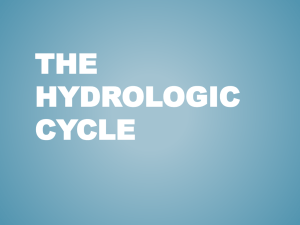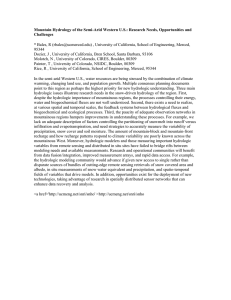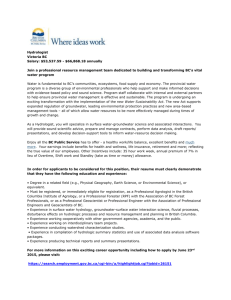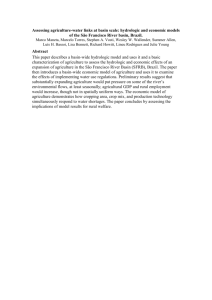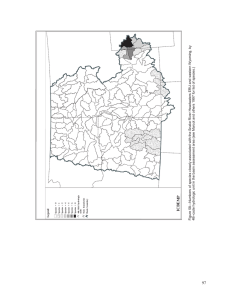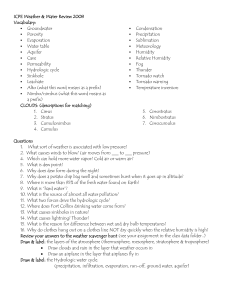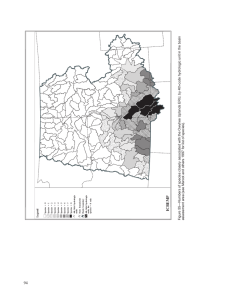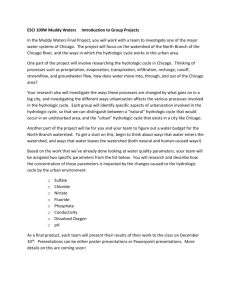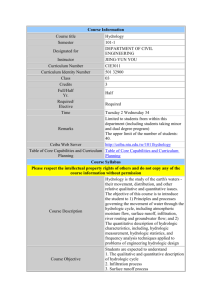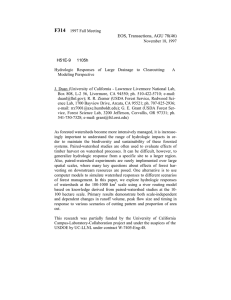7 th Grade: Hydrologic Cycle Vocabulary
advertisement
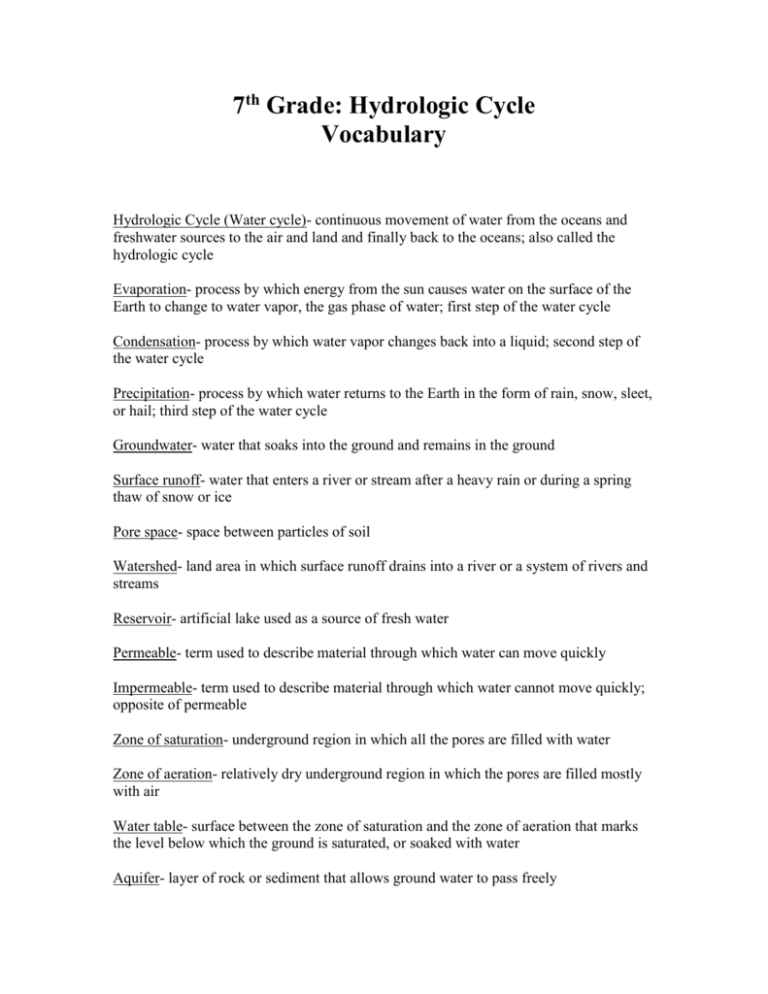
7th Grade: Hydrologic Cycle Vocabulary Hydrologic Cycle (Water cycle)- continuous movement of water from the oceans and freshwater sources to the air and land and finally back to the oceans; also called the hydrologic cycle Evaporation- process by which energy from the sun causes water on the surface of the Earth to change to water vapor, the gas phase of water; first step of the water cycle Condensation- process by which water vapor changes back into a liquid; second step of the water cycle Precipitation- process by which water returns to the Earth in the form of rain, snow, sleet, or hail; third step of the water cycle Groundwater- water that soaks into the ground and remains in the ground Surface runoff- water that enters a river or stream after a heavy rain or during a spring thaw of snow or ice Pore space- space between particles of soil Watershed- land area in which surface runoff drains into a river or a system of rivers and streams Reservoir- artificial lake used as a source of fresh water Permeable- term used to describe material through which water can move quickly Impermeable- term used to describe material through which water cannot move quickly; opposite of permeable Zone of saturation- underground region in which all the pores are filled with water Zone of aeration- relatively dry underground region in which the pores are filled mostly with air Water table- surface between the zone of saturation and the zone of aeration that marks the level below which the ground is saturated, or soaked with water Aquifer- layer of rock or sediment that allows ground water to pass freely
